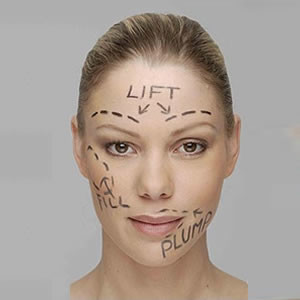 Many had been injected in a non-clinical environment by unqualified practitioners, which in some cases led to them seeking specialist medical help to correct the result.
Many had been injected in a non-clinical environment by unqualified practitioners, which in some cases led to them seeking specialist medical help to correct the result.
With this in mind, it is no surprise that more and more patients are seeking corrective procedures for ‘botched’ cosmetic work and whilst all of this sounds alarming, it isn’t a huge surprise, sadly. Many medical practitioners are worried that the cosmetic industry is not regulated correctly (and we agree, it is not!) (See Keough Report Here).
Botulinum Toxin, commonly known as Botox, is a prescription-only medicine, and it should be treated as a medical procedure, not a beauty treatment. Medical professionals should only administer it within a safe and regulated medical environment.
Until regulations are implemented and improved, we must ensure that patients are well-educated in the treatments they are considering and undertaking.
If you or anyone you know is considering cosmetic treatment, please ensure you have the facts and know the right questions to ask before even considering embarking upon it. Below is a guide put together by Bodyvie’s doctor, Dr Weber.
What to know when considering Botox & Fillers:
First and foremost, know who your Physician is and about the premises in which treatment is administered:
- Physician: Check background information. Are you seeing a qualified Doctor? Ask for their credentials. Do they specialise in ‘Cosmetic Medicine’, and are they a member of the British College of Aesthetic Medicine (BCAM) – BCAM registered doctors undergo monitoring, appraisal and continued professional development in the form of masterclasses, training days, product administration updates etc. How long have they been practising? Are they trained in the procedure you are considering, and what is their experience? How many procedures have they undertaken?
- Premises: Where will you be seen for treatment? Are the premises registered, and is the business regulated (Care Quality Commission)? When visiting, consider your immediate thoughts on the hygiene standards and general environment. You are undergoing medical treatment, and standards should align with this!
- Consultation: Ensure you are consulted by the treating physician, not sales personnel. Have you been given an informed consent form? Has your entire medical history been covered? Has the treatment been explained in full (and alternatives covered), and have you had an opportunity to ask any questions? Ensure that you know the brand of product that is being administered. All major brands have manufacturer sites – do your research.
- Treatment: Has the treatment process been explained in full? This should include: how the treatment is administered, immediate post-treatment side effects and outcomes, post-treatment guidelines and aftercare. Do you get a follow-up following treatment? Is this included in the initial cost (this is good practice for Botox!). Will you see the same doctor for a follow-up?
- Pricing: Ensure you understand reasonable and excessive pricing. Be cautious of ‘special offers’, particularly on Botox and Dermal Fillers and what seem to be significantly cheaper rates. Be careful of 3rd party discount websites selling more affordable treatments. These are medical products and, as such, have certainly associated premiums. If it sounds too good to be true, maybe it is. Then question who you are seeing and the product used.
- Knowledge: If you have any additional questions or queries regarding cosmetic treatments, don’t be scared to ask. Please use our contact form below to seek guidance for yourself or a friend. Our team is here to ensure good patient care and is happy to answer any treatment-related questions for existing or prospective patients or anyone simply looking for more information and guidance from medical professionals.










